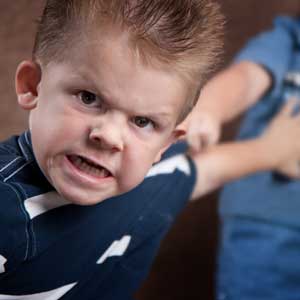 We know how tricky emotions can be, don’t we? Especially if we are unable to identify exactly what we’re feeling during emotionally heightened moments. It leads to frustration and hopelessness.
We know how tricky emotions can be, don’t we? Especially if we are unable to identify exactly what we’re feeling during emotionally heightened moments. It leads to frustration and hopelessness.
Imagine then, how frustrating these heated emotions must feel for our children. Take “anger” for example…
Kids feel anger to avoid painful feelings from failure, low self-esteem, and situations which they have no control. As parents and caregivers, it’s our responsibility to teach our children that being angry doesn’t make them a bad person, and show them how to identify and accept the “feel” of anger and help them discover ways to express this emotion in a healthier way.
Here are 10 Tips to Help Kids Deal With Angry Feelings…
1. Teach your children that they have power over their emotions. Reassure them that it’s normal to feel angry sometimes. Heck, I tell my 16-year old that it’s normal to be pissed at ME every once in a while. BUT… he’s been taught from an early age that he has the power to simply feel the feelings and move past it without behaving negatively.
2. Acknowledge that your child is going through is difficult. Your child needs to feel you’ve heard them and are on their side, especially when they’re experiencing an escalated level of emotions. Avoid forcing them to “silence” their feelings by saying things like, “don’t be mad!” or “you’re being silly!” Instead, validate their feelings by letting them know you understand their frustrations but are concerned their behavior isn’t working for them. They’re more likely to listen if they feel you’re on their team and not “against” them.
3. Provide physical outlets. When I’m feeling stressed or anxious, I go for a walk or hit the gym. It’s just as important to provide your kids, safe and healthy physical outlets such as exercise and play to burn off those feelings.
4. Role-play healthy emotional behavior. Children love to play “pretend.” Having your child act out various responses to difficult situations, then discuss which would work best. This helps kids think things through before the situation actually happens, and prepares them with choices in how they respond to their feelings. When J was younger, we used the little Legos people to act out all kinds of situations!
5. Ease tension with humor. We all have the occasional “off” day… maybe the kid’s just having a bad day. Tell a joke or a funny story to help ease them out of that negative space.
6. Teach the difference between having feelings and acting on them. Kids need to understand that they are not their feelings and don’t have to act on every single feeling they have. Teach them to notice the angry feeling and wait for it to pass like you’d wait for a train to pass through. Help them understand that they can make smarter choices when their mind isn’t clouded by emotions.
7. Help kids to express themselves using words. Talking helps children take control and helps reduce acting out. Teach your child to say respectfully verbalize their thoughts and feelings such as, “I don’t like it when you take my toys without asking. It makes me angry.”
8. Show unconditional love and support. It’s important that your kids understand you will always love them, even if you may not always agree with their behavior. This will help kids separate themselves from their thoughts, feelings, and actions, and take power over them instead.
9. Give consequences for inappropriate behavior, not for the angry emotion. If your child calls you a disrespectful name during a tantrum, give him consequences based on his behavior, but don’t punish him for feeling angry. Acknowledge his anger and discuss how he could have chosen a better way to let off steam.
10. Be an EXAMPLE of appropriate response and behavior. Children learn best by example, so how you deal with your own anger is extremely important to their growth. When I’m upset and I can’t think straight, I tell Joshua, “This is frustrating, I’m taking a time out!” or “Let’s talk about this later because I’m very upset right now; we’ll figure this out when my brain isn’t going all crazy!” This will show your child that taking time to cool off when you’re angry is not a weakness, but a sign of great self-control!
